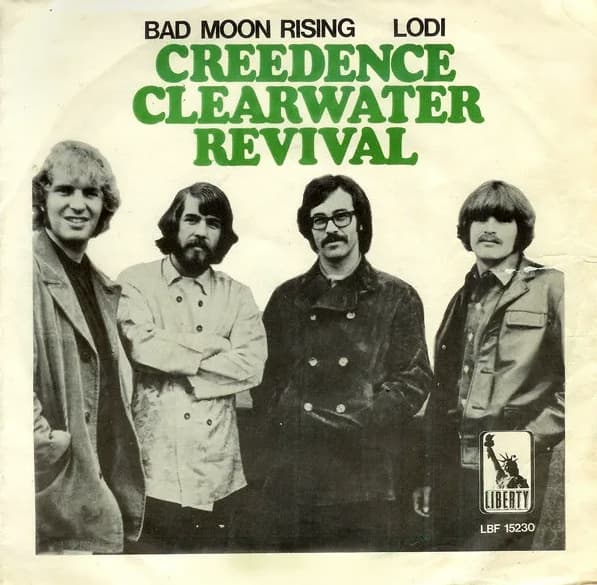
“Lodi” by Creedence Clearwater Revival: A Melancholic Tale of Musical Struggle and Stagnation
In the musical oeuvre of Creedence Clearwater Revival (CCR), the 1969 song “Lodi” emerges not just as a track, but as a poignant narrative set to melody. Written by the gifted John Fogerty and released as the B-side to the energetically received “Bad Moon Rising,” “Lodi” holds its own unique place in the band’s discography and in the hearts of its listeners. The song encapsulates the struggle of a musician caught in the unyielding grip of a small town that represents far more than its geographical confines.
The town of Lodi, California, becomes a metaphor for the pitfall of small successes and big failures that many musicians encounter. The protagonist, whom Fogerty brings to life with vivid lyrical prowess, finds himself perennially “stuck in Lodi,” an embodiment of the cyclic nature of minor gigs that lead nowhere but back to themselves. What’s compelling about “Lodi” is its universality, distilled into the experience of an artist who sings for his supper, only to find that his earnings can’t even secure him a way out of the town he’s performing in.
Fogerty admitted to having never visited Lodi before penning the song; he was merely captivated by the name’s sonic appeal. This detachment adds a layer of irony to the song, as it underscores a common reality in the life of many traveling musicians who often form fleeting, superficial ties with the places they briefly call home. The line, “If I only had a dollar for every song I sung,” poignantly underscores the economic precarity and the emotional turmoil faced by artists striving to turn their passion into a viable livelihood.
Musically, “Lodi” carries the hallmark sound of CCR with a straightforward rock arrangement that belies the depth of its lyrics. The change of key in the final verse amplifies the song’s underlying sadness, making the listener feel the weight of the narrator’s plight. This strategic musical shift mirrors the emotional landscape of the song, enhancing its impact and resonance.
Upon its release, “Lodi” was well-received, described by Billboard as possessing an “easy beat” that was as compelling as its A-side counterpart “Bad Moon Rising.” Both songs showcase Fogerty’s ability to blend stirring lyrics with memorable melodies, a skill that has made CCR’s music enduringly popular. Critics and fans alike praised “Lodi” for maintaining the energy and storytelling prowess evident in previous hits like “Proud Mary,” establishing it as a powerful piece of CCR’s musical legacy.
Today, “Lodi” remains a significant and reflective chapter in the annals of rock history. It’s more than just a song; it’s a narrative that captures the essence of the artistic struggle against the backdrop of a society that often romanticizes the life of struggling musicians without acknowledging their hardships. It stands as a testament to the fact that sometimes, the most profound stories are those that speak of small towns and the big dreams that languish within them.